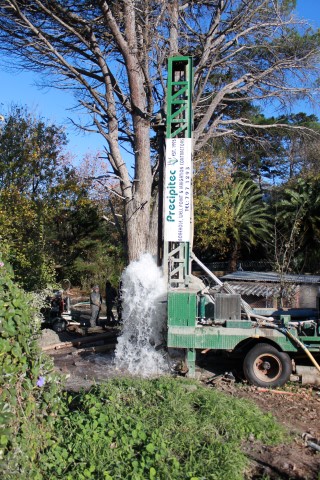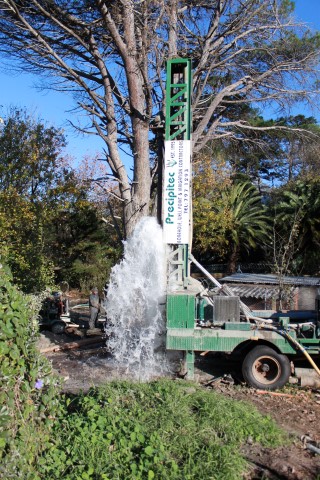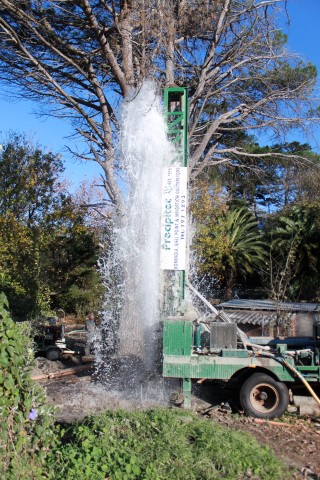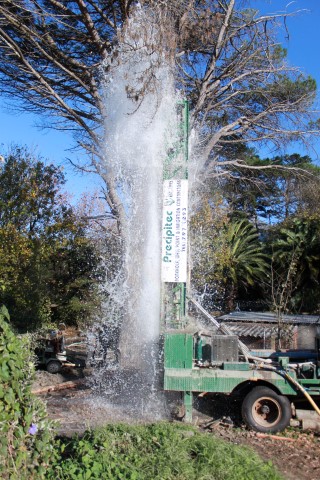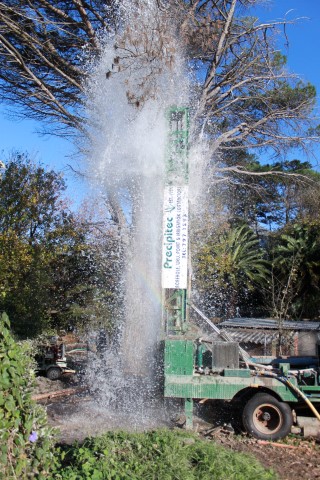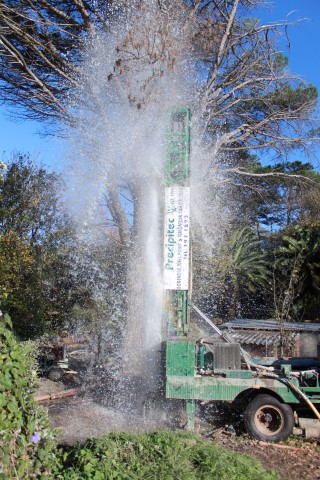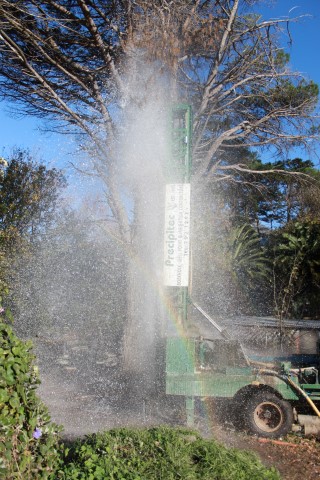An introduction to Groundwater Occurrence and Management.
By: P. Seward
Directorate: Geohydrology
Department of Water Affairs
One way to appreciate and understand the importance of groundwater in South Africa is to compare its characteristics with surface water. Imagine all the dams in South Africa full and overflowing with water. A lot of water you might think. But this water stored above ground is only 15% of the country's water reserves. The other 85% is stored underground. Groundwater is a far from insignificant resource.
With water demand expected to exceed water availability in South Africa in the next few decades, many options will need to be explored to reconcile demand and availability, and one of these will be the increasing use of groundwater. Groundwater is under-utilised in most parts of South Africa. The same cannot be said for surface water.
Groundwater is readily available just about everywhere, and usually requires no treatment to make it safe to drink. It is possible to bring groundwater to people in a few weeks as compared with the decade or so needed for a large dam. Costs for utilising groundwater are lower too. In addition groundwater schemes can be phased in - with additional borehole drilled as needed - huge upfront capital outlays are not needed. Thus groundwater is of supreme importance in quickly providing water supplies for local development and poverty alleviation. The highly distributed water demand in rural and informal urban situations often make regional schemes using surface water economically unviable in South Africa. It is estimated that some 14 million people in rural communities are dependent on, or will be supplied by groundwater.
Groundwater is less affected by climatic conditions than surface water. Whereas below average rainfall during the rainy season is enough to reduce many surface reservoirs to dangerously low levels, groundwater supplies will be little affected by one dry season. Most groundwater reserves can withstand several years of drought.
In many areas groundwater provides a continuous seepage to rivers - called baseflow, without which the rivers would dry up completely in the dry season. Thus surface water is - in many areas - dependent on groundwater.

